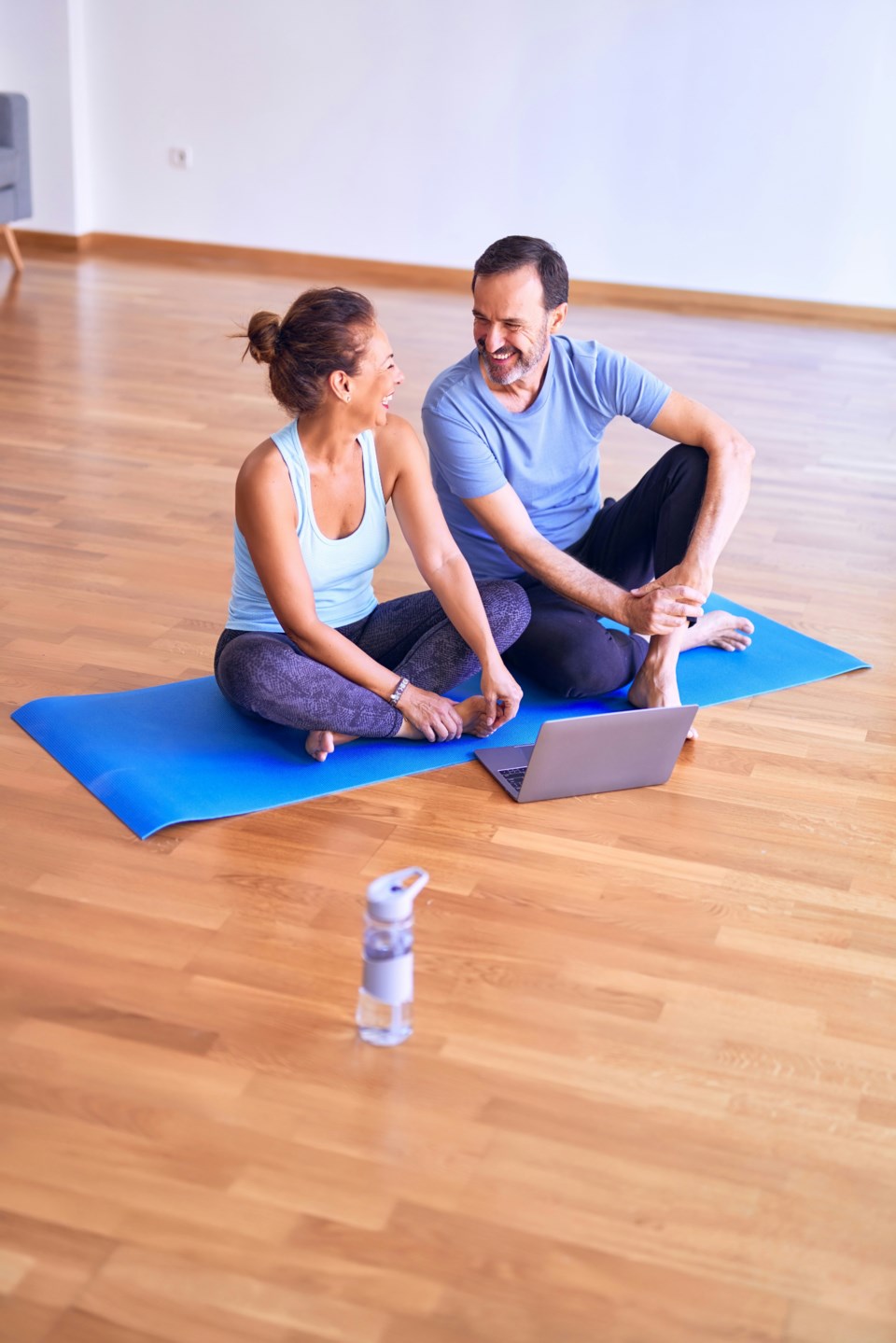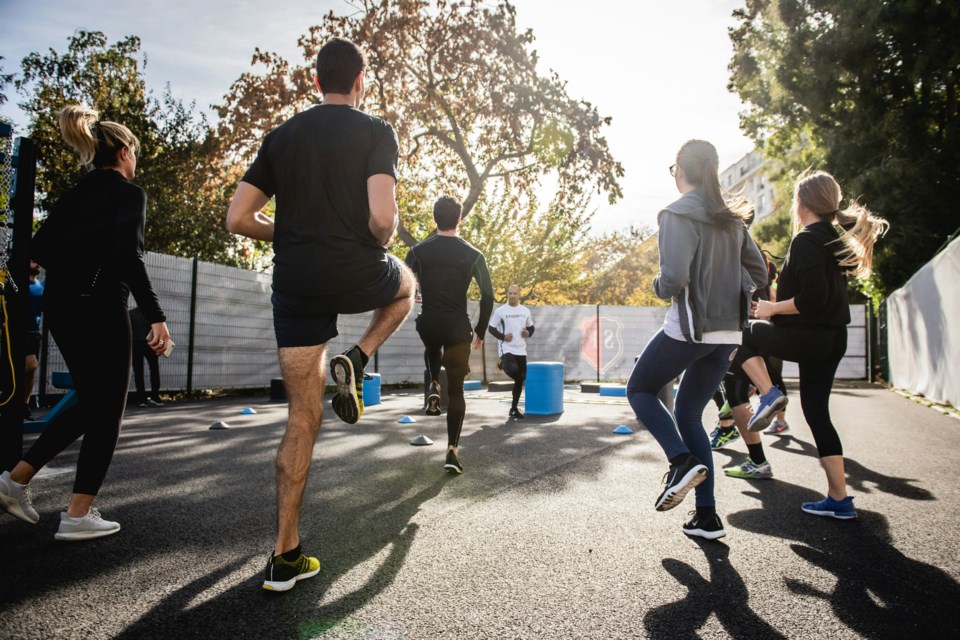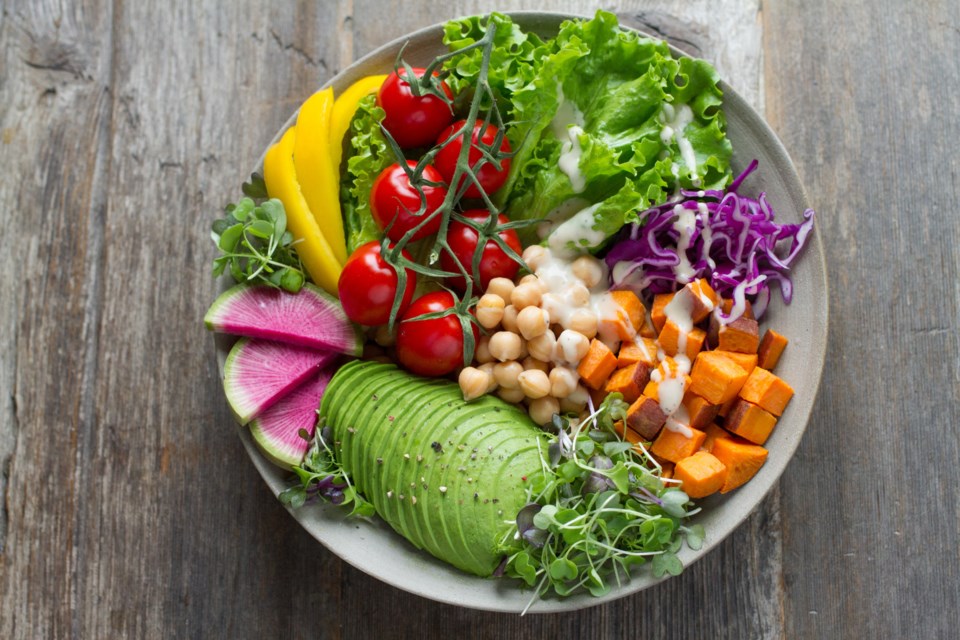As we age, we often hear that getting—and staying in shape—is increasingly difficult. But the truth is, that being fitter than ever after 40 is not only possible but also incredibly rewarding.
One scroll through your social feeds in your 40s will conjure up motivational posts from influencers proclaiming that peak fitness over 40 is the “ultimate flex” (literally!) and even more coveted than financial wealth and luxury cars, which actually resonates when you really think about it.
After all, what do worldly possessions even mean if you’re not in good enough health to enjoy them? And what feels more self-assuring than an incredibly able and sculpted physique, especially in the prime of your life? Health truly is wealth!
Best of all, you don’t need to be in the elusive 1% to get it. All you need are some proven tactics, a little discipline, and a whole lot of consistency.
Here are five ways to become your fittest self after 40.

1. Diet: Eat More Nutrient-Dense Foods
Research consistently shows that as we age, the importance of a nutrient-dense diet becomes even more critical. Consuming various fruits, vegetables, lean proteins, and healthy fats can help combat age-related muscle loss, maintain a healthy weight, and reduce the risk of chronic diseases. According to a study published in the American Journal of Clinical Nutrition, a diet rich in antioxidants and anti-inflammatory nutrients can positively impact aging-related declines in muscle mass and function.

2. Exercise: Prioritize Strength Training & Flexibility
It may seem like a “young person’s workout,” but that couldn’t be further from the truth. Strength training becomes increasingly important as we age. Studies have demonstrated that regular resistance training helps build and maintain muscle mass and supports bone health and metabolic function. Stacking that with some recovery work, such as yoga or pilates, can improve mobility and reduce the risk of injury. Research published in Biomed Research International highlights the benefits of regular strength in promoting overall physical function, disease prevention, positive mental health, well-being, and quality of life in older adults.
If you're still looking for other types of exercises to try if you're in the 40 and up club, check out our guide here.
3. Lifestyle: Consider Intermittent Fasting
Intermittent fasting has gained attention for potential health benefits, particularly for individuals over 40. Research in the New England Journal of Medicine that intermittent fasting may help to reduce stress, prolong the lifespan, and reduce the likelihood of experiencing diseases such as cancer and obesity. When implemented responsibly (starting slowly with equal eating and fasting periods of 12 hours on and 12 hours off, gradually increasing to 16:8), intermittent fasting can be a valuable tool for managing weight, improving insulin sensitivity, and promoting overall well-being as we age.
4. Wellness: Stress Management & Mindfulness
Managing stress becomes paramount as we age, as chronic stress can negatively impact both physical and mental health. Incorporating mindfulness practices, such as meditation or breath work exercises, can help reduce stress levels and improve overall resilience. According to research in SpringerLink, mindfulness-based interventions have been shown to effectively reduce stress and improve psychological well-being in middle-aged and older adults.
The reason this matters for getting in tip-top shape is because high levels of stress can lead to jacked-up cortisol production, which can negatively impact metabolism and physique by stubborn visceral fat accumulating around the mid-section. By reducing stress through mindfulness practices, individuals may be able to lower cortisol levels, potentially leading to improved fat metabolism.

5. Supplementation: Supporting Nutritional Needs
While a balanced diet should always be the primary source of nutrients, smart supplementation can help fill potential vitamin and mineral gaps, especially for adults over 40. Certain nutrients, such as caffeine, beetroot powder, creatine, protein, glutamine, and sour or tart cherry and magnesium may be lacking, which can impact performance and recovery. Be sure to consult this link to read up on what each of them are and why they are important and always consult with your doctor before starting a new supplement regimen. Supplementation of these nutrients may contribute to improved overall health, vitality, and especially exercise performance.
Your Get Started Checklist:
1. Embrace a nutrient-dense diet rich in fruits, vegetables, lean proteins, and healthy fats. Experts suggest aiming for 30 varieties in a week to reap maximum benefits.
2. Prioritize regular strength training and flexibility exercises to support muscle and bone health.
3. Explore intermittent fasting under the guidance of a healthcare professional for potential metabolic benefits. Here’s an excellent beginner’s guide to intermittent fasting from Atomic Habits author James Clear.
4. Incorporate mindfulness practices, such as a few minutes of meditation and deep breathing, into your daily routine to manage stress and improve overall well-being.
5. Consider targeted supplementation to support specific nutritional needs based on guidance from a healthcare provider.
About the Author

Alicia is a journalist and editor in digital and print media specializing in health, nutrition, fitness, and wellness. She was previously the Editorial Director of Clean Eating and Vegetarian Times. Her work has also appeared in Hone Health The Edge, Yoga Journal, Women’s Running, and Oxygen, among others. In addition to being a content creator, she's an ISSA-certified nutritionist, certified personal trainer, and fitness studio owner in Toronto. Alicia loves spreading the word about helpful, science-backed health information, and she can be contacted via her website at aliciamtyler.com.






